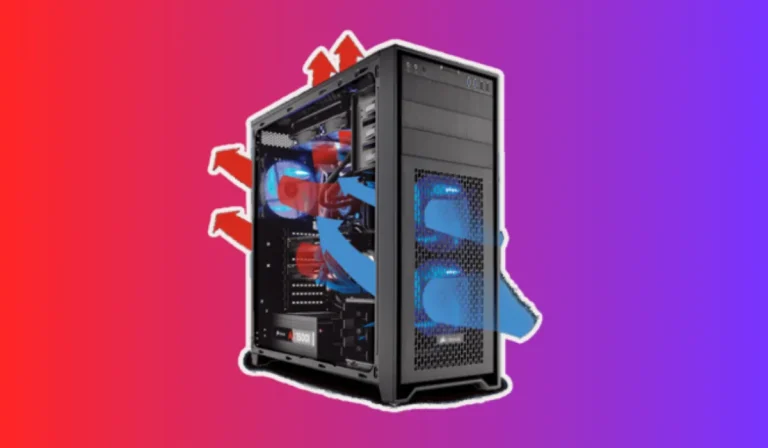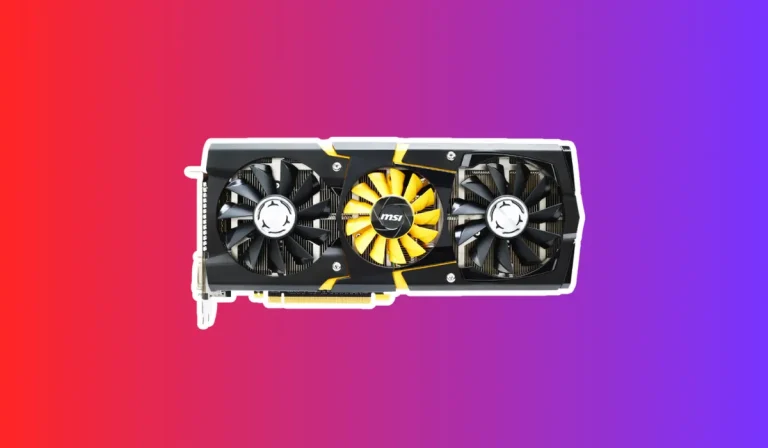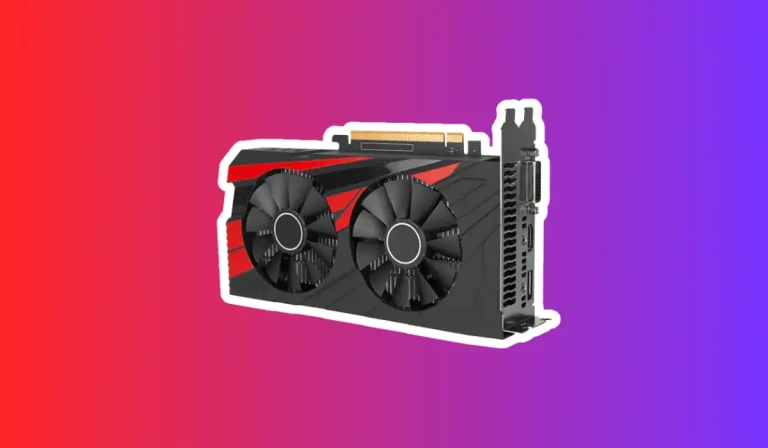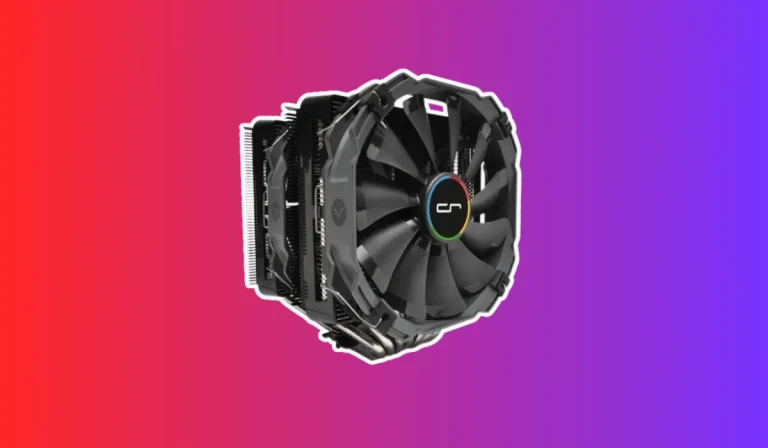Open PC Case vs. Closed PC Case
Are you puzzled about whether to keep your PC case open or closed? Let’s dive into the world of PC cases and explore the benefits and drawbacks of both options.
Whether you’re a tech enthusiast or a casual computer user, understanding the impact of your PC case’s openness is crucial for optimal performance and longevity.
Benefits of Running PC with the Case Open
Running your PC with the case open can bring a range of benefits, improving both performance and convenience.
Let’s explore the advantages of this approach and understand why some computer enthusiasts prefer to keep their PC cases open.
Improved Airflow and Lower Temperatures
When you run your PC with the case open, it allows for better airflow inside the system. This means that heat generated by the components can dissipate more efficiently, resulting in lower temperatures.
Cooler temperatures contribute to improved performance and can help prevent thermal throttling, ensuring your PC operates smoothly even during demanding tasks.
Easier Troubleshooting and Upgrades
Having the case open makes it easier to access and troubleshoot components. If you encounter any issues, such as a loose cable or a malfunctioning component, you can quickly identify and resolve the problem without having to remove the entire case.
Additionally, upgrading or installing new hardware becomes more convenient when you have direct visibility and accessibility.
Enhanced Dust Removal
Dust accumulation can hinder a PC’s performance and lifespan. Running your PC with the case open allows for easier dust removal.
You can use compressed air or a soft brush to clean the components regularly, reducing the risk of overheating and potential damage caused by dust buildup.
Visual Appeal and Customization
For many PC enthusiasts, the aesthetic appeal is just as important as functionality. Keeping the case open allows you to showcase your PC’s components, RGB lighting, and custom cooling solutions.
It provides a visually appealing and customizable setup, allowing you to personalize your computer’s appearance to match your style.
Risks and Drawbacks of Running PC with the Case Open
While running your PC with the case open may offer some benefits, it’s important to be aware of the potential risks and drawbacks associated with this approach. Understanding these factors will help you make an informed decision about whether to keep your PC case open or closed.
Increased Risk of Physical Damage
Leaving your PC case open exposes the delicate internal components to potential physical damage. Accidental bumps, spills, or even something as simple as a pen rolling off the desk can cause significant harm. Additionally, leaving the case open increases the risk of foreign objects, such as dust, debris, or pet hair, entering and interfering with the components.
Dust and Particle Accumulation
While having the case open can facilitate easier dust removal, it also means that more dust and particles can enter your PC.
Without proper dust filters in place, the exposed components are more susceptible to dust accumulation. Over time, this can lead to performance issues, overheating, and potentially even component failure.
Safety Hazards
Running your PC with the case open poses safety hazards, especially if you have curious pets or young children around.
Exposed circuitry and wires increase the risk of electric shocks or short circuits. Additionally, accidental contact with live components can cause injury to both you and the PC.
Increased Noise Levels
The case of your PC serves as a noise-dampening barrier, helping to reduce the sound generated by internal components.
Running your PC with the case open can result in louder fan noise and vibrations. This can be distracting, especially if you’re working in a quiet environment or trying to enjoy a movie or music.
Benefits of Keeping PC Case Closed
Keeping your PC case closed offers several advantages that can contribute to a better computing experience.
Improved Dust Protection
One significant advantage of keeping your PC case closed is the added protection against dust and other particles. Closed cases typically come with dust filters that help prevent dust from entering the system.
This reduces the risk of dust accumulation on the components, which can lead to performance issues and potential hardware damage.
Reduced Noise Levels
Closed PC cases often come with soundproofing materials that help dampen the noise generated by internal components, such as fans and hard drives.
By keeping the case closed, you can enjoy a quieter computing environment, making it easier to focus on tasks, listen to music, or watch movies without the distraction of excessive fan noise.
Enhanced System Cooling
Closed cases are designed to ensure proper airflow by directing it through specific pathways. This optimized airflow helps cool the components more effectively by efficiently dissipating heat.
With a closed case, you can take advantage of this airflow management, ensuring that your PC stays cool even during intense gaming or resource-intensive tasks.
Aesthetically Pleasing and Reduced Clutter
Closed PC cases often come in sleek designs with clean lines, offering a visually appealing setup.
Additionally, by keeping the case closed, you can hide the internal components and cables, reducing clutter and creating a more organized workspace. This can contribute to a more pleasant and professional-looking computer setup.
Factors to Consider when Choosing Between Open and Closed PC Case
Choosing between an open and closed PC case is a decision that requires careful consideration. Understanding the factors to consider will help you make an informed choice that suits your needs and preferences.
Cooling Requirements
Consider the cooling needs of your PC components. If you have high-performance hardware or engage in resource-intensive tasks like gaming or video editing, adequate cooling is crucial.
Closed cases often provide better airflow management and cooling solutions, ensuring optimal performance and longevity of your components.
However, if you have lower-power hardware or prioritize easy access for manual cooling, an open case might be more suitable.
Noise Tolerance
Evaluate your tolerance for noise. Closed cases with soundproofing materials help dampen the noise generated by fans and other components, providing a quieter computing experience.
If you prefer a quieter environment, a closed case is the better choice. On the other hand, if noise is not a concern or if you enjoy custom cooling setups with high-performance fans, an open case may be more suitable.
Dust and Maintenance
Consider your environment and the level of dust or debris present. Closed cases with dust filters offer better protection against dust accumulation, reducing the need for frequent cleaning.
If you live in a dusty environment or have pets, a closed case can save you time and effort in maintenance. However, if you have a clean workspace and are diligent in regular cleaning, an open case may be manageable.
Aesthetics and Space
Think about the visual appeal of your computer setup. Closed cases often come in sleek designs that contribute to an organized and professional-looking workspace.
If aesthetics are important to you or if you have limited space, a closed case can help create a clean and clutter-free setup. Conversely, if you prefer a more exposed and customizable look or need easy access to components for modifications, an open case might be a better fit.
Conclusion
In the battle of open PC case vs. closed PC case, there is no one-size-fits-all answer. It all boils down to your specific needs and preferences.
Consider factors like cooling requirements, noise tolerance, dust and maintenance, and aesthetics to make the right choice for a seamless computing experience.
FAQ’s
1. Which is better for airflow: an open PC case or a closed PC case?
A closed PC case is generally better for airflow management. It directs the airflow through specific pathways, ensuring efficient cooling for the components. Open cases lack this directed airflow, which can lead to less effective cooling and higher temperatures.
2. Are closed PC cases quieter than open PC cases?
Yes, closed PC cases are typically quieter due to the inclusion of soundproofing materials. These materials help dampen the noise generated by fans and other internal components. Open cases, on the other hand, do not provide the same level of noise reduction.
3. Do closed PC cases offer better dust protection than open PC cases?
Yes, closed PC cases provide better dust protection. They often come with dust filters that prevent dust particles from entering the system. These filters help reduce dust accumulation on the components, minimizing the risk of performance issues and hardware damage.
4. Can I customize my closed PC case as easily as an open PC case?
While closed PC cases offer sleek designs and a clean appearance, they may not offer the same level of customization as open cases. Open cases provide easier access to components, making modifications and upgrades more convenient. Closed cases may require more effort for customization.
5. Are closed PC cases more aesthetically pleasing than open PC cases?
Closed PC cases are often designed with aesthetics in mind. They come in sleek and visually appealing designs, with clean lines and hidden cables, offering a more organized and professional-looking setup. Open cases, while customizable, might not provide the same level of visual appeal and clutter reduction.





